
Are you a speed demon on the roads? We investigated some of the country’s speeding habits and found some interesting statistics.
Key Finds -
-
Motorists more likely to speed at weekends
-
Drivers more likely to speed early hours of the morning
-
More speeding occurred on 30mph roads than motorways
-
More accidents happened on 30mph roads than 70mph roads
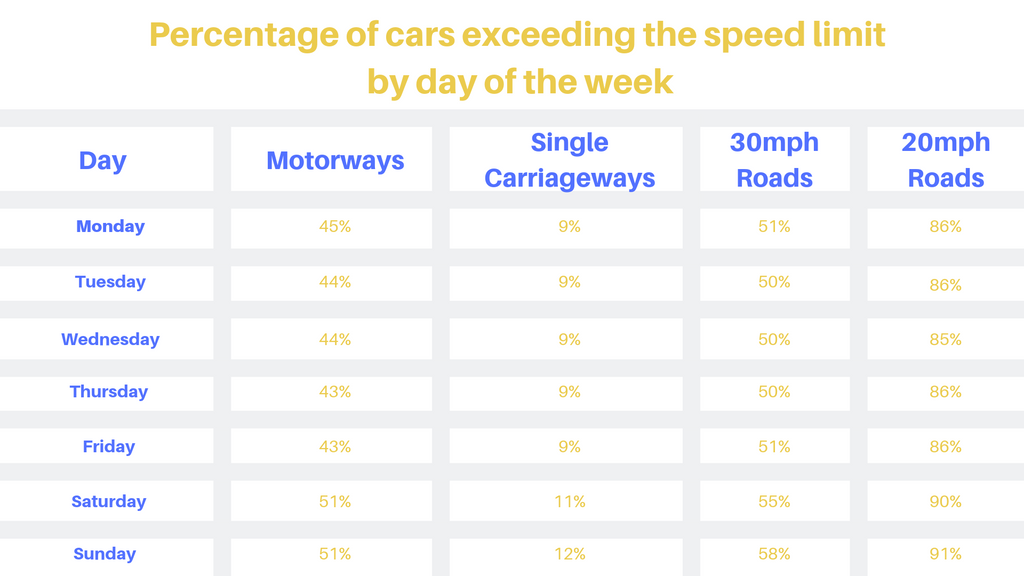
It was found that drivers are more likely to speed on the weekends as opposed to during the week. All roads, including motorways, saw a higher percentage of speeding motorists on Saturdays and Sundays.
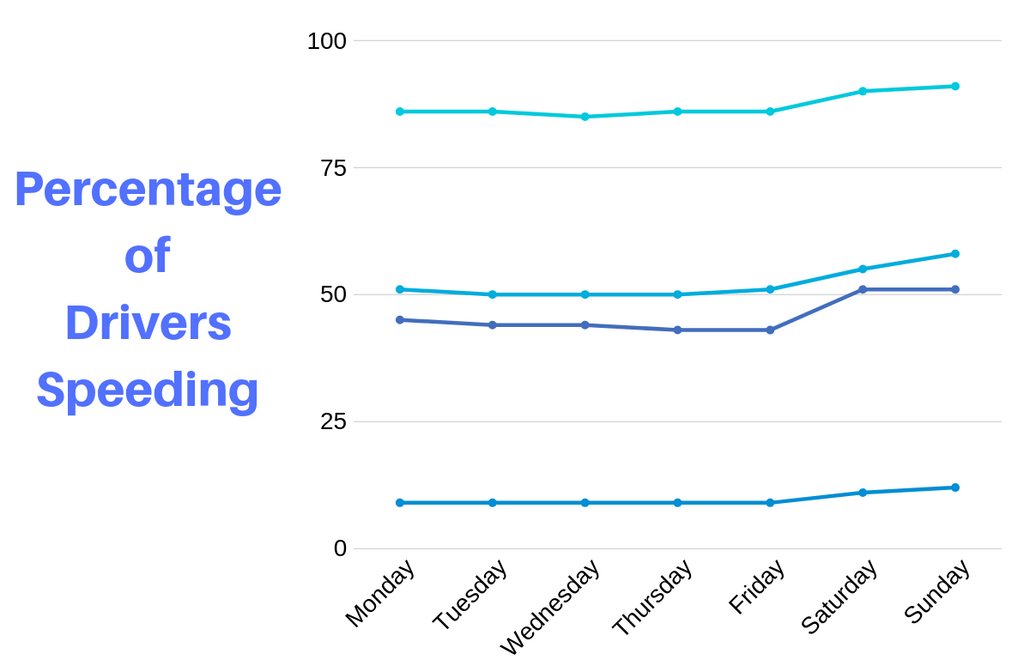
Speeding also peaked at particular hours of the day. On motorways, the most popular time for speeding motorists was 5am and 8pm, whilst on 30mph roads, 4am had the most speeding offenders.
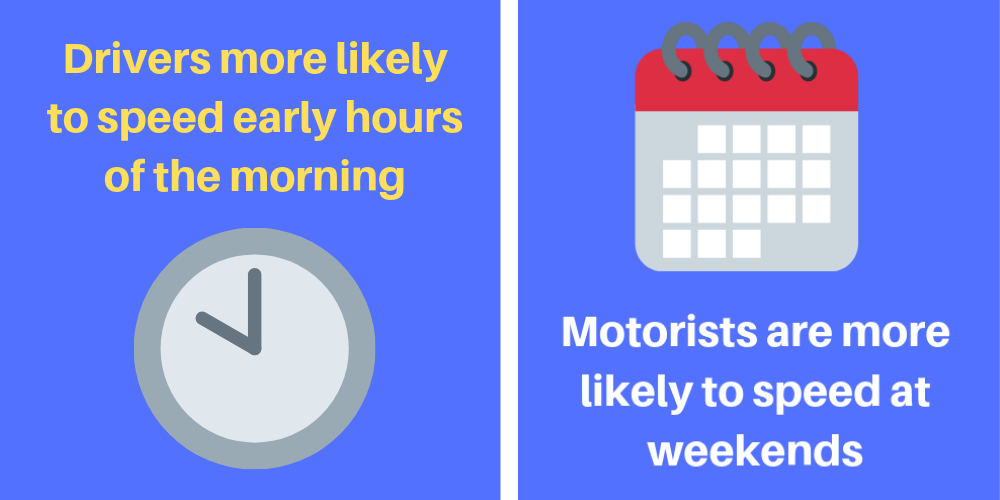
On motorways, 46% of cars were found to be exceeding the speed limit, with 11% exceeding the limit of 10% or more, while only 12% of HGVs (rigid) were found to be speeding on motorways.

On single carriageways where the speed limit was 60pmh, 10% of cars went over the limit, while 36% of buses were found speeding and 12% of rigid HGVs.
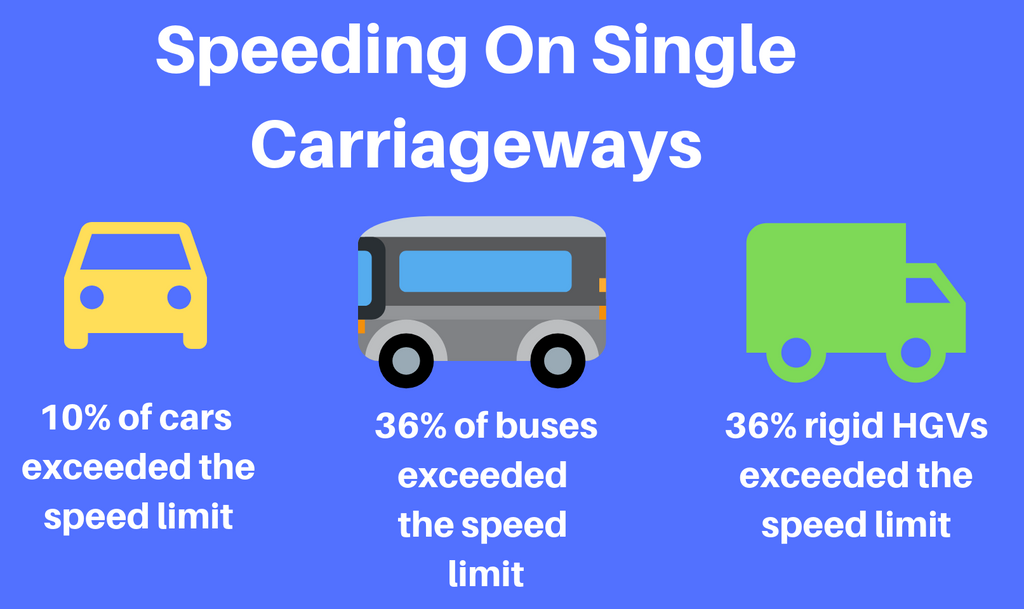
Speeding on 30mph roads was also an issue with motorists. 87% of cars exceeded the limit, as well as 36% of buses and 46% of rigid HGVs.

On 20 mph roads, 87% of cars were found speeding, 84% of buses and 74% of rigid HGVs.
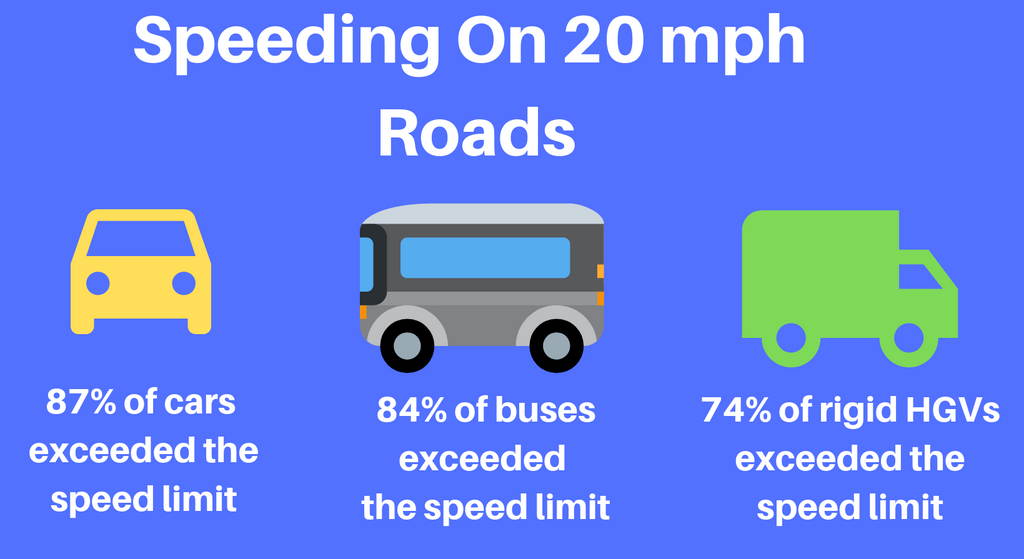
A YouGov poll also found that 50% of those asked would support installing technology into cars which would force motorists to adhere to speed limits.
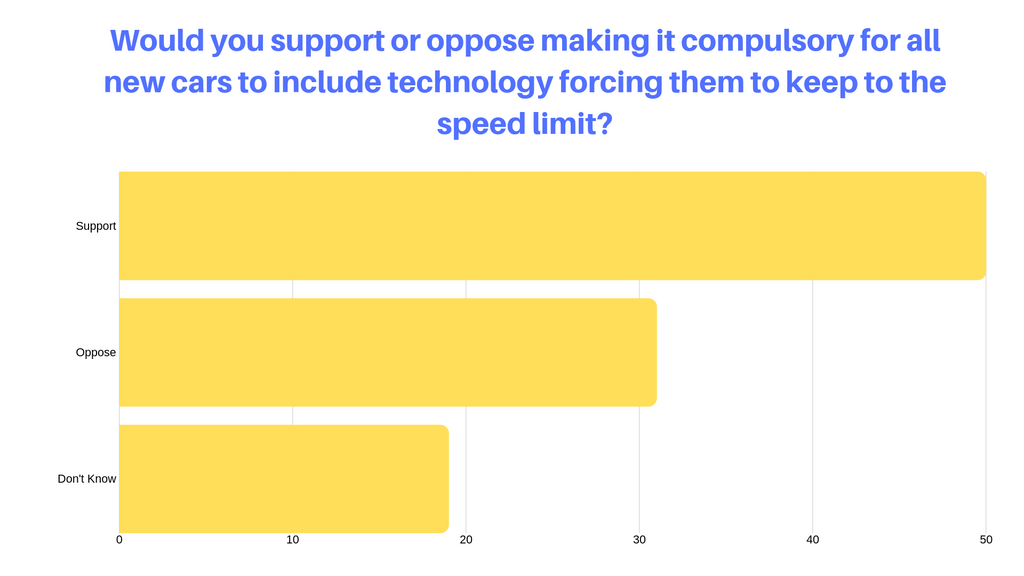
It was also found that more accidents occur on 30mph roads than any other. Data showed that in 2017, over 79,000 accidents occurred on 30mph roads. On 70mph roads, the number of accidents totalled less than 5,000 in the same year. These findings coincide with the fact that motorists are more likely to speed on 30mph roads than motorways and 70mph roads.
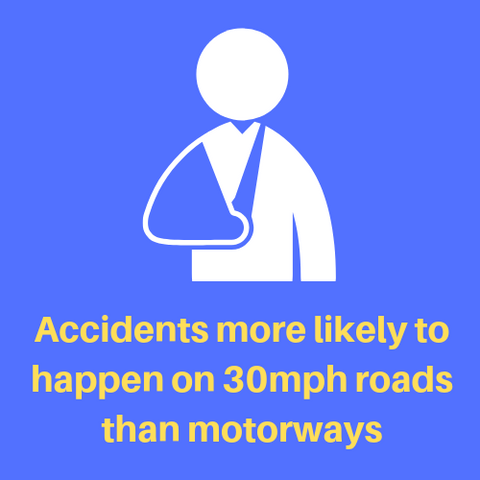
The regions most likely to speed was also found during the research. With the South East coming out on top. The region had around 400,00 speeding offences during 2017/2018, whilst Yorkshire and Humber had the least amount of speeding offenders, with less than 50,000 during the same period.

